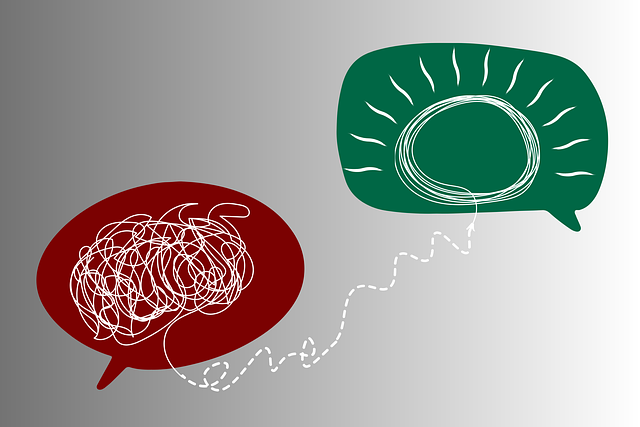Englewood Child Abuse Therapy focuses on social skills training as a crucial aspect of mental health care, addressing challenges like anxiety and depression in social situations. They offer evidence-based programs combining role-playing, group therapy, and emotional coping techniques to enhance communication, empathy, and conflict resolution. Through holistic approaches including play and art therapy, they empower clients with effective interpersonal strategies for personal growth and academic/community success, ultimately supporting their recovery journey.
Social skills training is a powerful tool for individuals navigating mental health conditions, offering a holistic approach to improving overall well-being. This article delves into the significance of social interactions and their impact on mental health, highlighting challenges faced by those with conditions like anxiety or depression. We explore effective strategies for social skills development and present Englewood Child Abuse Therapy as a pioneering model. By understanding and enhancing these skills, individuals can foster better connections, boost resilience, and lead more fulfilling lives.
- Understanding Social Skills and Their Impact on Mental Health
- Identifying Challenges: Social Interaction in Mental Health Conditions
- Strategies for Effective Social Skills Training
- Englewood Child Abuse Therapy: A Holistic Approach to Social Skills Development
Understanding Social Skills and Their Impact on Mental Health

Social skills are a crucial aspect of our daily lives, playing a significant role in our emotional well-being and mental health. They encompass a range of abilities, from effective communication and active listening to empathy and conflict resolution. These skills enable individuals to connect with others, build relationships, and express their feelings and needs. When an individual struggles with social interactions due to a mental health condition, such as anxiety or depression, it can lead to isolation and further exacerbation of symptoms.
At Englewood Child Abuse Therapy, we recognize the profound impact that social skills can have on recovery and Trauma Support Services. Our experts utilize Emotional Well-being Promotion Techniques to teach individuals the necessary Communication Strategies to navigate social situations confidently. By fostering these skills, we empower clients to engage in meaningful connections, reduce social anxiety, and build a supportive network, all of which are vital components for a successful journey towards mental health and personal growth.
Identifying Challenges: Social Interaction in Mental Health Conditions

Social skills training is a crucial aspect of mental health care, as it helps individuals navigate and engage in social interactions with confidence and ease. For those living with various mental health conditions, social interaction can present unique challenges that significantly impact their daily lives. These challenges may include anxiety, depression, or difficulties in communication, which can make simple conversations or group settings overwhelming.
Englewood Child Abuse Therapy recognizes these obstacles and focuses on empowering individuals to develop essential social skills, fostering meaningful connections, and enhancing overall well-being. By addressing the specific needs of each client, they offer tailored strategies such as Burnout Prevention Strategies for Healthcare Providers, effective Stress Reduction Methods, and encourage the development of Emotional Intelligence. These tools are vital in helping individuals manage their mental health conditions and build a supportive social network.
Strategies for Effective Social Skills Training

Social Skills Training is a powerful tool for individuals navigating mental health conditions, offering practical strategies to enhance their interactions and overall well-being. At Englewood Child Abuse Therapy, we understand that improving social skills can significantly contribute to an individual’s recovery journey. Our specialized programs focus on providing tailored support to foster healthy relationships and effective communication.
Effective training involves a combination of techniques, including role-playing scenarios that simulate real-life situations, helping clients practice and refine their interpersonal abilities. Additionally, group therapy sessions encourage participants to learn from one another, fostering a sense of community and shared understanding. The development of coping skills through these interactions promotes emotional healing processes, enabling individuals to manage stress and challenges more adaptively. This holistic approach ensures that participants gain not only technical social skills but also the confidence to apply them in their daily lives, ultimately contributing to improved mental wellness coaching programs and personal growth.
Englewood Child Abuse Therapy: A Holistic Approach to Social Skills Development

Englewood Child Abuse Therapy takes a holistic approach to social skills development, recognizing that mental health and social prowess are intricately linked. Beyond traditional talk therapy, their comprehensive program integrates various therapeutic techniques, such as play therapy and art therapy, to cater to diverse learning styles. This multifaceted strategy not only aids in building essential social cues and communication but also fosters a safe space for children to express themselves freely.
The program emphasizes the gradual development of coping skills, tailoring activities to enhance self-esteem and confidence. Through engaging exercises and interactive sessions, participants learn effective strategies to navigate social interactions, manage emotions, and improve overall mental wellness. This holistic approach has proven successful in preparing individuals for real-world challenges, enabling them to thrive in various settings, including school and community environments, as highlighted in the Mental Wellness Podcast Series Production.
Social skills training plays a pivotal role in enhancing mental health, especially for those navigating conditions that isolate or impair social interactions. By understanding the impact of these skills and identifying specific challenges, we can develop effective strategies to foster better communication and relationship-building. Englewood Child Abuse Therapy exemplifies this holistic approach, offering specialized programs that target social skills development, ultimately empowering individuals to thrive in their personal and professional lives.










